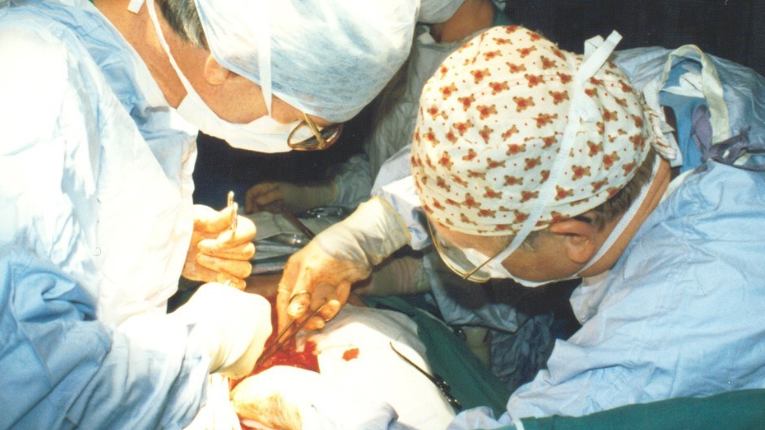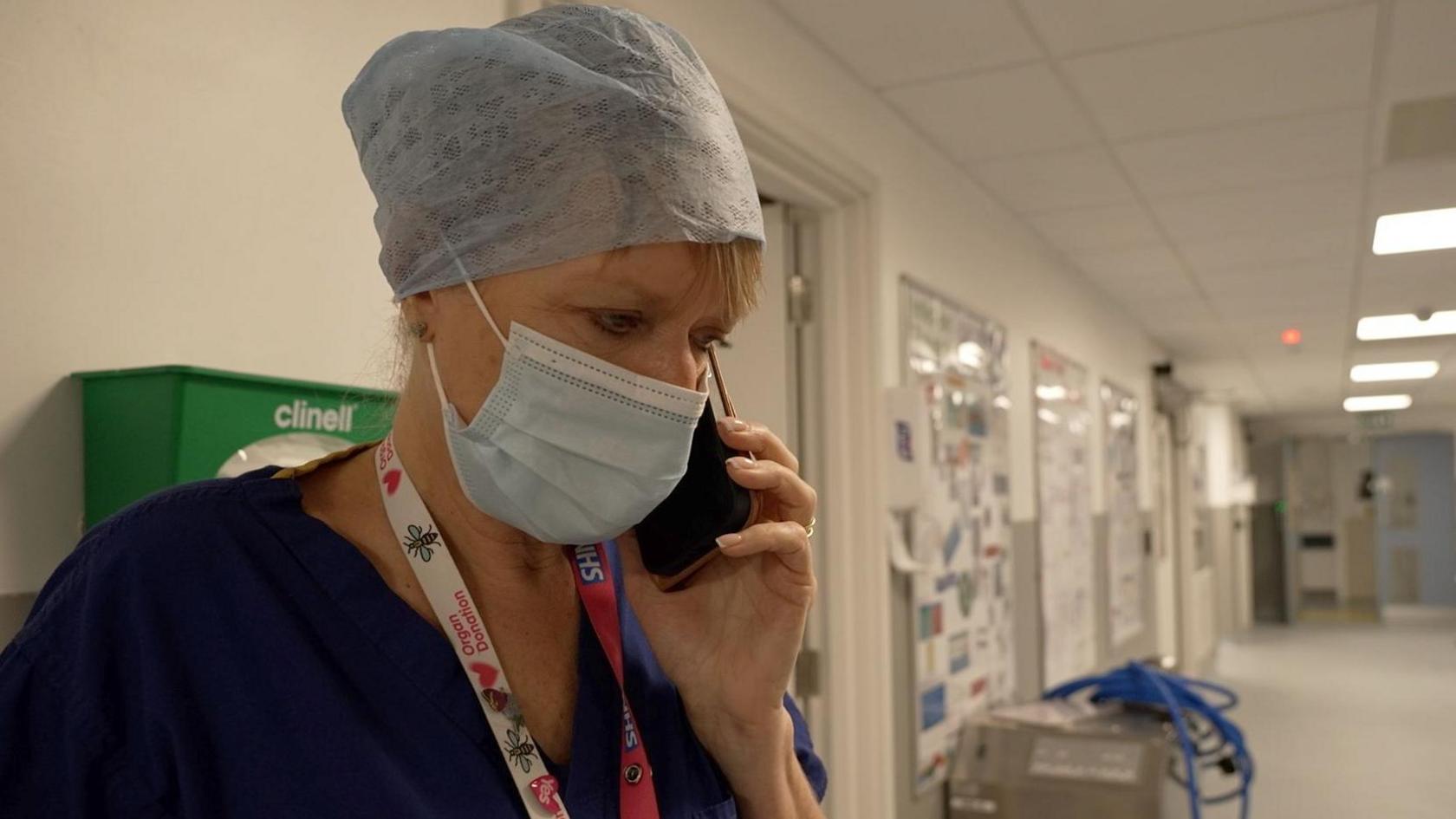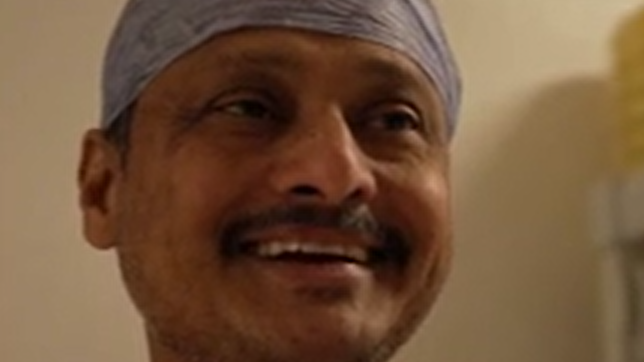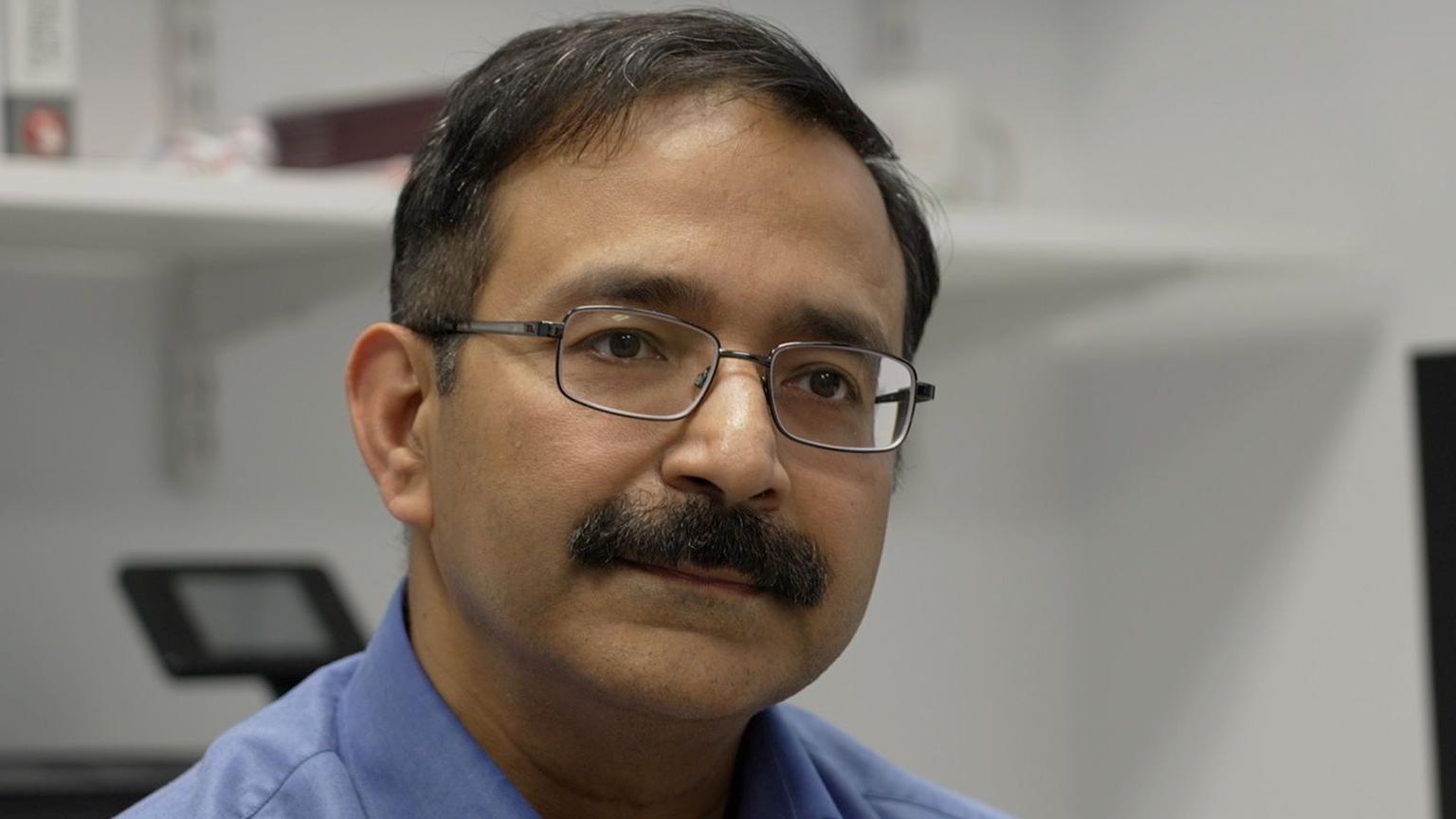Heart transplants: How do they work and how are they organised?

- Published
Timing, they say, is everything in life, and hearts are the most time-critical of all transplant operations.
After only two hours out of the donor, the risks start to increase for the recipient.
Four hours, I am told, is generally considered the safe limit.
Jane Nuttall, who works at Wythenshawe Hospital in Manchester, carries the huge logistical responsibility of arranging heart transplants.
She is one of the recipient transplant co-ordinators at Wythenshawe, which is one of only six such units in the UK.
It is her job to make sure everything runs smoothly, from booking operating theatres in the donor hospital to liaising with the team who will be removing the heart and transporting it back to Manchester.
Between constant phone calls between the teams, she tells me: "You do have to multi-task."

Jane Nuttall is responsible for the logistics associated with organ transplants
It's worth noting that Jane, and many of the surgical team, is approaching the 12th hour of her shift, with many more to come.
"You do get a bit tired," she admits.
"We’re just used to it. I work with a great team... and that’s just what we are used to doing."
That afternoon, Wythenshawe had received late notice of a donor heart.
The organ had originally been destined for another centre but at the last minute its patient couldn’t take it.
Wythenshawe, though, also has a match.
The centre's director, Professor Rajamiyer Venkateswaran, says the patient was about to go shopping when she was called.
"She was delighted and grabbed the opportunity,” says Prof Venkateswaran, who tells me the operation will be starting soon.
Because it is so time critical, surgery to remove the donor's and recipient's hearts have to start almost simultaneously.
"We would rather open, make sure everything is dissected off and ready to cut the heart out," says Prof Venkateswaran.
"Even if we need to wait for the donor team to do the retrieval that is better rather than rush."

Wythenshawe centre director Prof Rajamiyer Venkateswaran
Because of this, the surgeons can’t actually wait for the new heart to arrive in the hospital before removing the recipient's own. Instead, the team transporting it will alert them when they are half an hour away.
"So that’s the time I can confidently start cutting the heart out if it’s by road," the professor adds.
"If it’s by flight we want to make sure it’s landed in Manchester Airport. As soon as it’s landed we get off the phone and I can cut out the heart because I know it’ll be here in 10 or 15 minutes."
To get to this point is a huge exercise in logistics.
The donor is several hours away and is giving a number of organs, which will go to different centres around the country.
Each organ will require a specialist retrieval team to carry out the surgery.
"You have to (make sure) all the recipients are ready for their operations in each respective centre before you start retrieving the organs," says consultant Vipin Mehta, who leads the Manchester Retrieval team.

Vipin Mehta leads the organ retrieval team in Manchester
The retrieval team travels to the donor centre, which could be anywhere in the country.
At any one time just three cardio-thoracic (heart and lung) retrieval teams are on duty, serving the UK’s six centres.
The staff generally have to live within 30 minutes of the hospital.
"Once they get a call, within 60 minutes they need to leave the hospital to go to the retrieval centre," explains Mr Mehta.
"So that includes travelling time to the hospital, collecting all the equipment, collecting the preservative solutions, the instruments… we have to carry all the equipment we need for the operation with us."
The journey back with the heart is even more critical.
Transplant co-ordinator Jane takes a phone call and has an urgent conversation with Prof Venkateswaran. The vehicle carrying the heart is stuck in a traffic jam on the motorway.
The professor gives his permission for the vehicle to “come on blues” – turn the siren and flashing lights on – to clear the way.
Just over an hour later, Jane gets the call that the heart is now half an hour away.
Prof Venkateswaran begins to cut out the patient’s own heart. Blood is now being pumped around her body by a bypass machine.
Suddenly, there's another phone call. It turns out the M60 is shut and the retrieval team has to divert off the motorway and come through central Manchester.
Jane relays the information. Fortunately it is now late at night and the roads are relatively quiet.
"They’re five, maybe 10 minutes away," says Jane.
'There we go!'
Finally the team rushes in with the heart and the operation to connect it can begin.
Within an hour, the heart is ready to start again and the arteries and veins are unclamped.
We stare at it and Prof Venkateswaran gives it a small tap. Tentatively, it starts to move.
"There we go!" he says.
To help things along, he delivers a light electric shock to the heart and it kicks into rhythm.
"Great news," he declares. "The new heart’s working fine, the patient’s off bypass, maintaining good blood pressure, function looks good, so we are very pleased."
The new heart is observed for an hour to make sure there are no issues before the patient is stitched up and wheeled off to the recovery room.
Jane rings the patient’s husband to tell him that it’s gone well.
It is now 2.30am and she has been at work for more than 17 hours.
"I feel I’ve got an amazing job," she says.
"It’s very demanding; it can be very stressful, but just the ultimate outcome… we’ve known the patients having transplant from when they first come to the hospital for clinic.
"We’ve seen them struggling… it’s just amazing that they get this new quality of life."